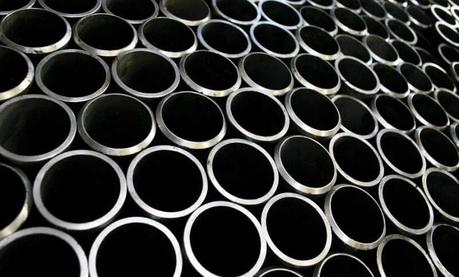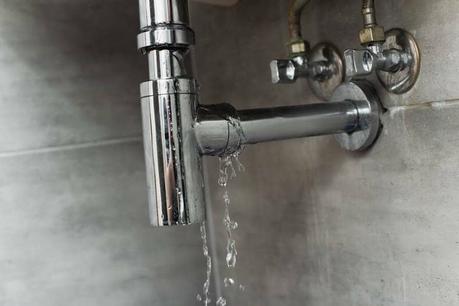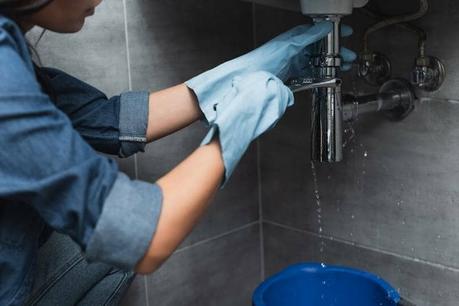What is causing noise from my water pipes?
In an ideal world, water pipes are somewhat of an afterthought component of a home heating system. When in proper working order and operating quietly and successfully, there’s no need to pay any great attention to them.
However, given that they are subject to frequent temperature and pressure fluctuations, water pipes can be susceptible to making a racket when malfunctioning. And especially in a busy family household, peace and quiet from home heating is surely an absolute minimum expectation.
So, what is causing noise from your water pipes and how can you prevent it?
This article will delve into the depths of noisy water pipes, exploring the most common types of sounds that emerge from them, and what can be done to rectify the issue.

What are the most common water pipe noises?
Most commonly, water hammers are the root cause of noisy water pipes, resulting, somewhat expectedly, in a banging or hammering sound emanating.
This happens when the water supply is switched off and the pipes’ pressure levels cause the water within them to clatter against the pipe walls or shut-off valve. The distinguished sound is typically audible after taps or other water supply devices are turned off.
But how do you tackle water hammer noises?
How to stop water hammer pipe sounds
To stop water hammer pipe sounds, a reset of your water system’s air chambers is recommended.
For this to commence, first switch off your mains water supply. Then, open all the taps in the house to drain out the pipes entirely. Make sure you don’t miss out taps in a downstairs bathroom, or an outdoor hosepipe outlet, for instance.
Then, turn your mains water supply back on, and you should find that the hammering noises have been eliminated.
However, if you find that a water pressure reset has not managed to do the trick, you can instead turn your intention to your water supply pipework. Particularly in older properties, you might find that the pipes aren’t secured in place especially well, so there can be some leeway that can make ripples or waves that eventually result in water hammers. Use plumber’s tape and/or clips in the appropriate areas to secure loose supply pipes in place properly, and consult our guide to covering pipework.
And if all else fails, get in touch with a local plumbing professional to inspect your supply pipes. You might find that something not as easily detectable to us mere mortals is flagged up immediately by a qualified plumber. It could be that you require the fitting of an in-line water surge arrester, for example, to prevent persistent water hammering.

What should I do if my water pipes are whistling?
Whistling is another fairly common sound to emerge from plumbing setups from two main sources; namely specific taps and from the pipework setup itself. If a single tap or the odd couple of so are whistling when in use, a worn washer is one of the likelier causes, as is a clogged aerator or loose brass screw. Simply, the water supply must be switched off and those components replaced to fix such issues.
Should you notice whistling sounds stemming from the toilet and dying down once the tank has filled, a ballcock valve replacement is the probably remedy. If the toilet is whistling with more regularity though, the vertical overflow tube is likely causing the trouble. Try bending the float arm down slightly to trigger the ballcock to shut off a little quicker.
If whistling noises are coming from a few components, it could be that minerals have conglomerated, your pressure regulator is working incorrectly, or your main water supply valve has been worn down. In any such case, a plumber should be consulted to diagnose the problem and provide their guidance regarding the most appropriate and hopefully the most cost-effective solution. How old your pipework is and the formation of the system will be influencing factors for fluctuations.

What should I do if my water pipes are making vibrating sounds?
If your water pipes are making vibrating sounds, it signifies that water pressure levels are too high. It is possible to perform household water pressure tests by using a threaded pressure gauge that will screw directly into your taps or valves.
Ideally, the water pressure should not register at any level above 80 psi. If pressure does exceed this gauge, you should enlist the services of a plumber to fit a pressure regulator, to prevent exorbitant water pressure from causing widespread issues in the home.
What other noises do water pipes make?
In addition to those already listed, low-level rubbing or squeaking sounds are commonly produced by water pipes as well – typically in setups where proper insulation is lacking. This occurs as metal pipework warms up and expands as hot water is transported throughout them to supply home radiators, therefore coming into contact with the structural makeup of the property. This can be one of the more difficult noisy pipe issues to resolve, as pipework is typically drywalled in, so invasive measures can be required to reach the network to wrap it up effectively. If copper pipes are instead fit in your house, it is worth lowering the temperature of your water heater minimally – a slight adjustment to temperature can sometimes eradicate the issue so you don’t need to disrupt your whole supply pipe system. Our ultimate guide to heating pipework offers detailed information on the different types of pipes and how they operate.
Meanwhile, ticking and dripping noises are others to be concerned about in a home piping network. These sounds suggest a leakage or drainage problem, which will almost certainly require the assistance of a professional plumber to detect and resolve. If you’re lucky though, minor drips or leaks could just be the result of water pressure differentials or light thermal expansion. So before you pick up the phone to the plumber, attempt some diagnostics yourself…
You can initially try an air chamber reset as aforementioned earlier in this article as a means to combat audible water hammering. If the dripping or ticking noises continue after this, run very hot water into the bathroom sink until it is filled, and then flush the toilet to filtrate cold water into your pipes. From here, you can drain out the hot water from the sink. And if the drip or tick is still there, it is likely that thermal expansion is causing it, which whilst not ideal, is a much better outcome than one that necessitates full scale meddlesome pipework alterations. If you are no clearer on the problem after trying either of these methods, it’s time to seek professional help with the matter.
Get in touch with BestHeating
This article has hopefully provided you with all the information you need to diagnose noisy water pipes and combat the problems effectively. But if you need further information surrounding heating pipe networks or any other home heating issues in general, our Advice Centre is brimming with helpful guidance.
Or, you can contact our friendly team with any heating posers you might have. Leave your thoughts in the comments section below, or reach out to us via Instagram, Facebook or Twitter.
Got a radiator or heating question?

You can find a range of helpful answers to hundreds of common home heating questions on our FAQ pages.
Click the link or tap the image above to ask a question of your own!

